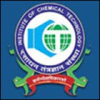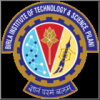How to become a Bio or Pharmacy Informatician
Overview, Courses, Exam, Colleges, Pathways, Salary

Overview
Who is Bio or Pharmacy Informatician ?
The pharmacy model is rapidly changing with the introduction of information technology in the field, many pharmacy informatician serve on multidisciplinary teams who are indulged in planning, documentation, designing, maintenance and execution of pharmacy information solution and new healthcare-related technologies such as medication administration using barcodes and computerized medication entry procedures. Pharmacy informatician usually strives to increase the safety of the medication, reduce the cost and involve themselves in boosting the efficiency of medications. Pharmacy informatician is involved in reducing medical errors by implementation and development of new procedures, this is done by improving systems and finding new methods for better use of medications.
Typical day at work
What does Bio or Pharmacy Informatician do?
A Pharmacy informatician performs the following task:
- Pharmacy informatician is involved in data, information and knowledge management – managing medication-related information, also promoting and integration of information exchange.
- Pharmacy informatician delivers knowledge and information – delivering medication knowledge throughout the clinical life cycle, also measuring the usage of knowledge.
- They develop a point of business and analytical solution for improvement in decision making.
- They apply clinical experience with research and theoretical principles to improve clinical practice and usability.
- Provide and manage new medication information to the pharmacy system
- They provide information on drug interaction, usage, dosage, side-effects and proper medication storage.
- They also maintain records of pharmacy files, registrations of poison, drugs and radioactive nuclei.
- They serve as medical team consultant or serve as a specific therapist such as Oncologist.
- They are involved in planning, maintaining and implementing procedures such as packing, mixing and labelling pharmaceuticals.
- They ensure quality security and proper disposal of chemicals.
- Prepare a sterile solution for surgical procedures, emergency room and patient home.
Abilities and Aptitude needed
What are the skills, abilities & aptitude needed to become Bio or Pharmacy Informatician?
Pharmacy informatician handles the major task of improving services provided by the healthcare industry. Data is an important resource in this field, so the aspiring candidates should have important skills and abilities such as dedication, focus, attention, creative mind, problem-solving abilities, quick thinker, interpersonal and intrapersonal skills to communicate the information effectively.
Pathways
How to become an Bio or Pharmacy Informatician?
Entrance Exam
Entrance Exam for Bio or Pharmacy Informatician ?
In order to enrol into a Bachelor’s program at an esteemed university, aspirants are expected to clear the Medical Entrance Exams (NEET or All India Pre Medical Test - AIPMT) or Engineering Entrance Exam (JEE main and subsequently, the JEE Advance exam) which makes the aspirant eligible to apply anywhere in India. These are very difficult and challenging exams to crack that requires hard work as well as rigorous and consistent preparation. Some states have their own entrance exams that are admissible in their respective universities. Many educational institutes conduct their own entrance tests.
Courses
Which course I can pursue?
Best Colleges
Which are the best colleges to attend to become an Bio or Pharmacy Informatician?
Industries
Which Industries are open for Bio or Pharmacy Informatician?
Aspirants may also opt for the following careers related to bioinformatics:
- Pharmaceutics
- Pharmaceutical analyst
- Pharmacologist
- Pharmaceutical biotechnologist
- Industrial pharmacist
- Pharmacognosy
- Pharmaceutical chemist
- Pharmaceutical quality assurance officer
internship
Are there internships available for Bio or Pharmacy Informatician?
In any given field, along with theoretical knowledge, it is always an added advantage to get an on-ground experience that enhances the aspirant’s understanding of the domain. It is highly encouraged to take up an internship and gain exposure to the latest software and hardware tools, methodologies and technology and become fluent with industrial standards. Aspirants may seek internships while studying and even after graduation. Many education boards have made it mandatory to take up at least one internship during the course of their degree program in order to better prepare the candidates for competence in the real world.
Career outlook
What does the future look like for Bio or Pharmacy Informatician?
The future for bioinformatics and pharmacy informatics professionals appears promising, as these fields continue to evolve and play critical roles in advancing healthcare and pharmaceutical research. Here are some aspects that indicate a positive outlook for bioinformatics and pharmacy informatics:
Advancements in Data Analysis: With the ever-increasing volume of biological and healthcare data, there is a growing demand for professionals who can effectively analyze and interpret this information. Bioinformatics and pharmacy informatics experts are skilled in utilizing computational tools, data mining techniques, and machine learning algorithms to extract meaningful insights from complex datasets. As technology improves, the ability to handle and analyze large-scale biological and clinical data will become even more important.
Precision Medicine and Personalized Healthcare: Bioinformatics and pharmacy informatics professionals are essential in the development and implementation of precision medicine approaches. By integrating genomic data, clinical information, and drug response data, these experts can help tailor treatments and medications to individual patients. The ability to analyze genetic variations, identify biomarkers, and predict drug interactions is crucial for achieving personalized healthcare outcomes.
Drug Discovery and Development: Bioinformatics and pharmacy informatics play vital roles in the drug discovery and development process. These professionals can analyze genomic data to identify potential drug targets, simulate drug interactions, and optimize drug design. As pharmaceutical research continues to advance, the need for experts who can navigate and integrate bioinformatics and informatics approaches into drug development pipelines will remain high.
Health Information Systems: The integration of health information systems is a priority in modern healthcare. Bioinformatics and pharmacy informatics professionals contribute to the design, implementation, and management of electronic health record (EHR) systems, medication management systems, and decision support tools. Their expertise ensures the secure exchange of patient information, accurate medication administration, and improved clinical decision-making.
Collaboration with Other Fields: Bioinformatics and pharmacy informatics professionals often collaborate with researchers and experts from diverse disciplines, such as genetics, molecular biology, medicine, and computer science. This interdisciplinary collaboration fosters innovation and enhances the potential for breakthroughs in areas like genomics, proteomics, and pharmacogenomics.







